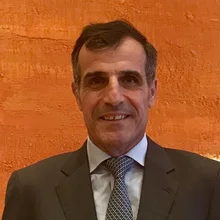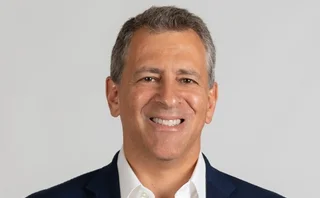
Commodities broker of the year, Asia: BNP Paribas
Energy Risk Asia Awards 2020: Broker supports clients’ collateral needs during 2020 volatility and builds regional power trading offering ahead of the energy transition
The multiple crises that hit commodities markets this year – from demand destruction and unprecedented volatility to a string of commodity trader bankruptcies – made commodities broking an exceedingly challenging business.
With commodities firms buffeted by extreme events, brokerages needed to respond to the new needs of their customers very swiftly. BNP Paribas excelled at this, not only handling record numbers of client transactions at an extremely difficult time, but also offering tailored credit and collateral solutions that supported the overall liquidity of the market.
“BNP Paribas has a strong risk management DNA and the continued investment in our risk-monitoring infrastructure allowed us to be very responsive to client needs over the past year,” says Paul Saubestre, head of derivatives execution and clearing, Asia-Pacific, prime solutions and financing at BNP Paribas. “Our systems worked well and allowed us to be able to respond to our clients swiftly.”

The bank’s robust IT infrastructure, supported by an operations team that worked long hours to maintain connectivity with clients despite lockdown restrictions, was a standout for the bank. All clients have access to BNP Paribas’ web-reporting platform that allows them to access and download real-time reports as well as things like intra-day trade confirmations and reconciliations. Additionally, a ‘margin adviser’ tool provides clients with information on the margin requirements of current and intended trade positions.
One important area for the bank this year has been its continued provision of customised collateral solutions to clients. An example is the collateral sharing facility that allows Apac clients to tap into the credit rating of a parent company headquartered in another region. Another example is the collateral transformation facility that allows clients to use less liquid assets in cash collateral programmes.
When asked if it was more challenging to offer such products due to the events of this year, Tobias Lausch, head of derivatives execution and clearing sales for Asia-Pacific says: “We can clearly say no. They worked as planned and we did not have any issues such as a lack of liquidity.”
A senior analyst in the trading risk control and compliance department of a state-owned Apac energy company agrees with this assessment. She says BNP Paribas has consistently provided the firm with “strong credit facilities and good conditions to support our trading activity” over the course of a 10-year working relationship. “The support team also responds quickly when we have problems with a trade system or any issues regarding a futures trade,” she adds.
BNP Paribas is also positioning itself to support clients facing the upcoming energy transition. “This year, we have seen the oil price war, the Covid crisis and then government stimulus plans, such as the European Green Deal, as well as [several] environmental disasters. Every one of our clients has changed their perspective on climate change,” Lausch says.
Commodities brokers must think through and understand what role they will play in the market in three to five years’ time, he adds. In addition to company-wide policies on issues such as exiting coal investments, and monitoring early stage markets such as hydrogen and water trading, BNP Paribas’ commodities business has been supporting the development of regional power markets in Apac, which will underpin the decarbonisation of many economies in the region.
The bank has been active in the early stages of the Japanese power futures trading over the past year, supporting the new contracts at Tokyo Commodity Exchange and the European Energy Exchange. And in Australia it supports the development of the Financial and Energy Exchange, which will operate alongside the Australian Securities Exchange.
“We want our clients to have access to multiple venues,” says Lausch. “We are backing more innovation, greater granularity in contracts and new products. We want to see competition.”
Only users who have a paid subscription or are part of a corporate subscription are able to print or copy content.
To access these options, along with all other subscription benefits, please contact info@risk.net or view our subscription options here: http://subscriptions.risk.net/subscribe
You are currently unable to print this content. Please contact info@risk.net to find out more.
You are currently unable to copy this content. Please contact info@risk.net to find out more.
Copyright Infopro Digital Limited. All rights reserved.
As outlined in our terms and conditions, https://www.infopro-digital.com/terms-and-conditions/subscriptions/ (point 2.4), printing is limited to a single copy.
If you would like to purchase additional rights please email info@risk.net
Copyright Infopro Digital Limited. All rights reserved.
You may share this content using our article tools. As outlined in our terms and conditions, https://www.infopro-digital.com/terms-and-conditions/subscriptions/ (clause 2.4), an Authorised User may only make one copy of the materials for their own personal use. You must also comply with the restrictions in clause 2.5.
If you would like to purchase additional rights please email info@risk.net
More on Commodities
Energy Risk Asia Awards 2025: The winners
Winning firms showcase the value of prudent risk management amid challenging market conditions
Data and analytics firm of the year: LSEG Data & Analytics
Energy Risk Awards 2025: Firm’s vast datasets and unique analytics deliver actionable insights into energy transition trends
OTC trading platform of the year: AEGIS Markets
Energy Risk Awards 2025: Hedging platform enhances offering to support traders and dealers in unpredictable times
Electricity house of the year: Natixis CIB
Energy Risk Awards 2025: Bank launches raft of innovative deals across entire electricity supply chain
Voluntary carbon markets house of the year: SCB Environmental Markets
Energy Risk Awards 2025: Environmental specialist amplifies its commitment to the VCM
Sustainable fuels house of the year: Anew Climate
Energy Risk awards 2025: Environmental firm guides clients through regulatory flux
Weather house of the year: Parameter Climate
Energy Risk Awards 2025: Advisory firm takes unique approach to scale weather derivatives markets
Hedging advisory firm of the year: AEGIS Hedging
Energy Risk Awards 2025: Advisory firm’s advanced tech offers clients enhanced clarity in volatile times







